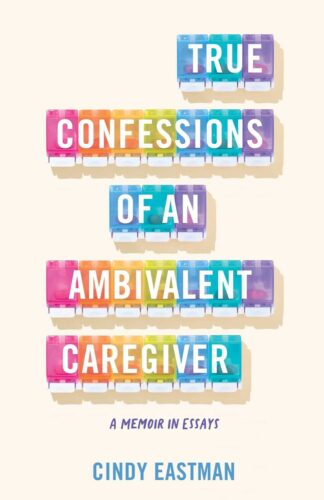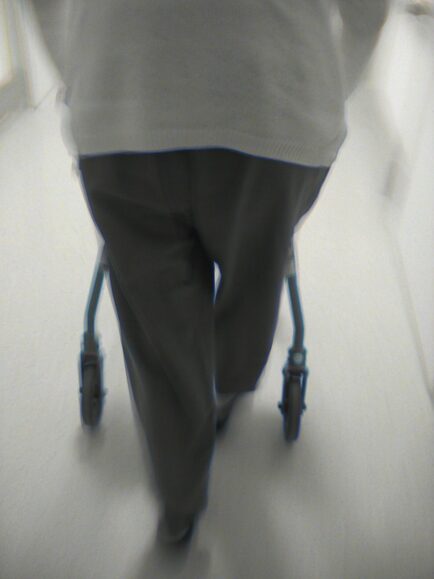 The Personal Cost of Care
The Personal Cost of Care
Author: Cindy Eastman
In the spare 168 pages of True Confessions of an Ambivalent Caregiver, Cindy Eastman dispels the myth of the exultant caretaker, blessed and honored to give up everything, to thwart desires and change routines, to take care of an aging, dependent parent. Eastman writes short essays during the four-year ordeal of caring for her dying father, who gradually becomes unable to take care of himself. Wishing to avoid the teary-eyed grief of after the fact, she writes in blunt prose about the feelings of the moment, the complications of duty, the inadequacy of care facilities, the state of American healthcare, and the harm of caregiving to the dependent relative, the family, and the individual carer.
Eastman chose to take in her father, expecting that his death would be rapid. It wasn’t. She watched him deteriorate, physically and mentally, and dealt with the rampant ingratitude of someone suffering the inability to care for themselves, confronting the indignities of aging with its stripping of choices, of personhood, of privacy. It’s a complicated, self-repeating cycle, and Eastman was not without sympathy for her cantankerous father. At the same time, she admitted to longingly hoping that each nap would be his last. What works is the honesty here. Caretaking is not the Disney-fied moment the movies lovingly show. It is grueling. It changes everything. It raises feelings of resentment. It raises feelings of exhaustion, feelings of guilt, and a desire for a return to life – to YOUR life without the burden of another person’s around-the-clock care. It’s brutal, but it’s a truth that needs to be spoken, especially if any remedies are to be found for families suffering the brunt of caring for an aging loved one while also trying to raise children, hold down jobs, and find moments of peace in a hectic life filled with medical catastrophes and memory loss related arguments.

Image by Gerd Altmann from Pixabay
Yet, the honesty is brief, and the curtain remains mostly drawn, showing only curated, furtive glimpses. We see the bad moments, but never the good. What was her father like before this? What was their relationship like? There must have been more there (she did, after all, choose the sacrifice because she felt that every care facility was inadequate). We see the exhaustion, the irritation, the black thoughts, but only piecemeal. We’re left feeling like a lot remains behind the scenes, and we want more.
The pages are scant, and there are a lot of moments of filler – grocery lists, pill lists, obits for slightly related people. The essays are often repetitious, and while that makes sense, because the cycle of love and resentment would necessarily be monotonous, readers still feel like we were shielded from most of this world, that we only got a few transitory, mostly polished moments out of four years – years which must have had ups and downs, dramatic moments and quite moments. We still don’t entirely understand how hard it was to live this way, how complicated and joyful letting go was, how Eastman dealt with the conflicting emotions and why she chose to keep her father with her. True Confessions of an Ambivalent Caregiver is good in that it opens a window into a world we usually lie about and shatters the illusion of what it is really like to care for an aging relative. Yet, it only scratches the surface of a topic that deserves many more pages and a lot more sharing. As it is, this book is small, peripheral, negative without being fully poignant, and surprisingly guarded.
– Frances Carden
Follow my reviews on Twitter at: https://twitter.com/xombie_mistress
Follow my reviews on Facebook at: https://www.facebook.com/FrancesReviews
- Book Vs Movie: The Shining - April 6, 2020
- Thankful For Great Cozy Mysteries - December 13, 2019
- Cozy Mysteries for a Perfect Fall - October 20, 2019


